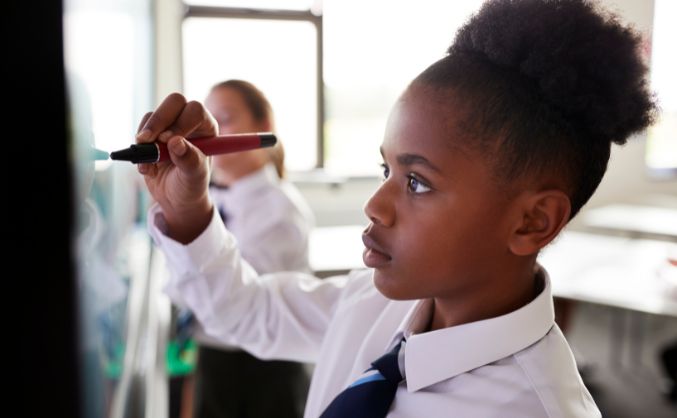Determining where to send your child to school is a huge decision. As a parent, you want your kids in a nurturing environment that supports their academic and personal growth. So, here’s the question: is private school vs public school a better fit?
Both options have pros and cons. Ultimately, the best choice depends on the child’s needs and your family’s priorities. This blog post will explore key differences between public and private schools to help you make an informed decision. We’ll discuss factors like class size, curriculum, extracurricular activities, and overall learning environment.
What is Private Education?
Determining where to send your child to school is a huge decision. As a parent, you want your kids in a nurturing environment that supports their academic and personal growth. So, here’s the question: is private school vs public school a better fit?
Both options have pros and cons. Ultimately, the best choice depends on the child’s needs and your family’s priorities. This blog post will explore key differences between public and private schools to help you make an informed decision. We’ll discuss factors like class size, curriculum, extracurricular activities, and overall learning environment.
10 Reasons Why Private Schools Are Good

Is private school better than public school? Although you won’t find a one-size-fits-all answer, there are important considerations. Here are ten factors to help you decide:
1. Smaller Class Sizes and Personalized Attention
Public schools can have large class sizes, sometimes exceeding 30 students per teacher. By contrast, private schools, typically have smaller class sizes, often ranging from 10 to 20 students. Teachers can cater to each student’s learning style and identify areas where children might need extra support or enrichment. Such personalized attention enhances a child’s academic success and boosts confidence.
2. An Engaging Private School Curriculum
Public schools must follow a standardized curriculum that the state dictates. While this curriculum ensures students learn essential skills, it might not cater to individual interests or learning styles.
Private schools, on the other hand, have the flexibility to design a holistic curriculum. They can offer exciting courses beyond core subjects like math, science, and language arts. For instance, students could choose electives that include art, music, drama, coding, or robotics.
Private schools also prioritize project-based learning, where students work together on real-world projects. Students develop critical thinking and problem-solving skills by applying the knowledge they’ve learned in the classroom.
3. A Nurturing Environment
Public schools can be large and diverse, which can be a positive for some students. However, it might take some time for your child to feel a sense of belonging in such a large environment. Private schools often have a stronger sense of community, where students, teachers, and parents know each other well. This close-knit environment can foster a sense of belonging and support for your child.
4. Hands-On Extracurricular Activities
Private schools also typically offer a wider range of extracurricular activities than public schools. Students can participate in sports teams, academic clubs, STEM programs, gardening activities, performing arts, or student government. These activities allow children to explore their interests, develop new skills, and build friendships with like-minded peers.
5. A Community that Values Diversity, Acceptance, and Respect
Many private schools actively cultivate a diverse student body and promote an inclusive environment. This can expose your child to various cultures, backgrounds, and perspectives, fostering respect and acceptance for others.
6. A Strong Foundation: Pre-K through 8th Grade
Some private schools focus on early learning and middle school — Pre-Kindergarten through 8th Grade. Educators can use this targeted approach to build a strong foundation for a child’s academic journey. This foundation will support them as they progress through high school and beyond. Top-rated schools like Bethany School in Cincinnati tailor their curriculum to specific developmental stages and meet individual needs.
7. An Emphasis on Character Development
Private schools often go beyond academics and emphasize important values like honesty, responsibility, compassion, and teamwork. This focus on character development can help your child grow into a well-rounded and ethical individual.
8. A Commitment to the Life-Long Love of Learning
Private schools create a supportive and stimulating learning environment that can inspire a child’s lifelong passion for learning. Being curious and eager to learn will help them succeed in school, at work, and as good citizens in the community.
9. Proven Ways to Prepare Children for the Future
Private schools are aware of the ever-changing demands of the future. They often use technology in their teaching and provide resources to help students prepare for college. This helps ensure that students are well-prepared for success in higher education and beyond.
10. Options, Options, Options: Types of Private Schools
Private schools include religious institutions, college prep schools, and Montessori learning centers. Some families prefer day schools whereas others like boarding schools. The admissions officer can answer your questions and help you find the best fit for your child. Remember, each type of school offers a unique philosophy and learning environment.
Bethany School is a co-educational, Episcopal school, enrolling students from Pre-Kindergarten through 8th grade. We offer a quality education at an affordable price. This makes us one of Cincinnati’s most budget-friendly private schools.
To learn more about the pros and cons of private schools, check out this article from Top Tier Admissions.
Making the Choice: Private or Public School

As you can see, there is no “right” answer that says whether public or private school is better. The choice depends on your child’s needs and your family’s priorities. Here are a few important factors to consider:
- Cost: Private schools typically charge tuition. Additionally, there can be fees for sports and activities. Private school students usually wear uniforms, which can be expensive for some families.
- Location: Consider the commute time and convenience of the school’s location.
- Religious affiliation: Some private schools associate with a particular religion. Bethany School in Cincinnati, for example, is Ohio’s only Episcopal school.
- Your child’s learning style and personality: Will your child thrive in a small, personalized setting or do they need a larger, diverse environment?
Bethany School: A Cincinnati Tradition of Academic Excellence
For over 125 years, Bethany School has served Cincinnati as a top choice for families seeking quality education. We provide an accessible and affordable education that promotes intellectual growth, character development, and a lifelong love of learning.
To that end, we offer a comprehensive and engaging curriculum catering to students in elementary through middle school. With small class sizes and dedicated teachers, we help each student reach their full potential. To learn more about Bethany School or schedule an appointment, visit our website.
FAQs: The Benefits of Private Education
Is private education worth it?
The value depends on your child’s needs. Public schools offer a great education, but private schools can provide a unique environment.
Private school teachers can tailor their approach to each student’s strengths and weaknesses with smaller class sizes. This personalized attention can significantly boost academic achievement and confidence as students discover their passions.
What are the top benefits of private school?
Here are three reasons why private schools are better than public schools:
- Diverse course offerings: A wider range of electives beyond core subjects that ignite a passion for learning in various fields
- Strong sense of community: Supportive network where students feel a sense of belonging and can thrive socially and emotionally
- Unique learning environments: Specialized programs or focus areas, like Montessori or project-based learning
What are private schools like?
- Intimate learning: Smaller student bodies and a focus on individualized attention
- Active parent involvement: Strong sense of community with frequent opportunities for parent participation
- Varied extracurricular activities: Wide range of extracurricular activities; students can explore new interests and develop valuable skills
- Focus on student leadership: Students can take on leadership roles in school activities and organizations
- Why private schools are better: The close-knit community, diverse learning opportunities, and focus on individual strengths prepare children for success and personal growth.
